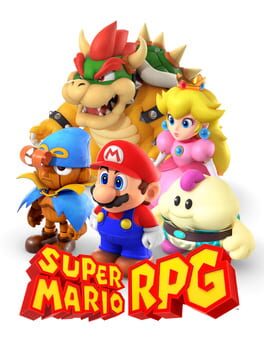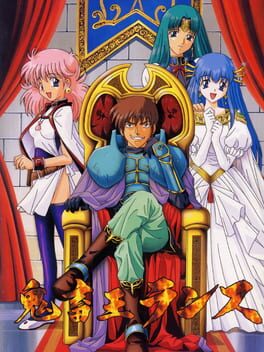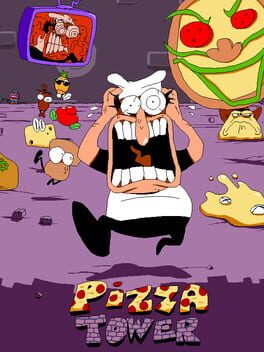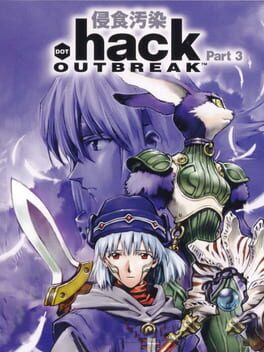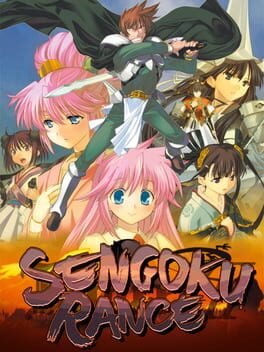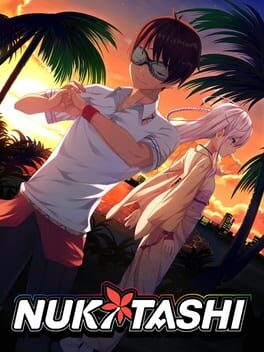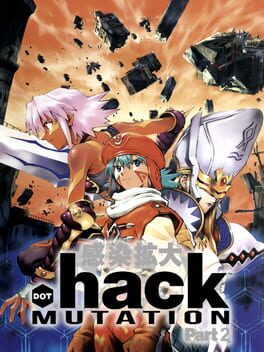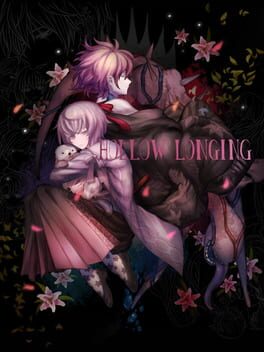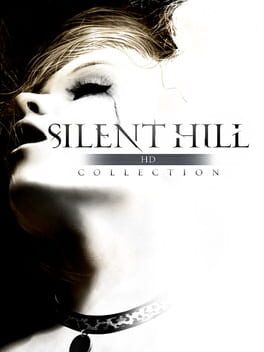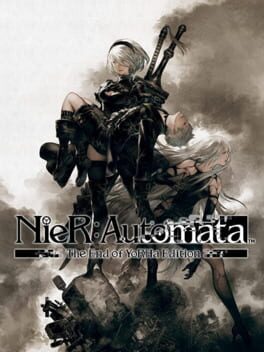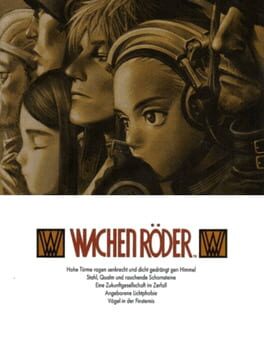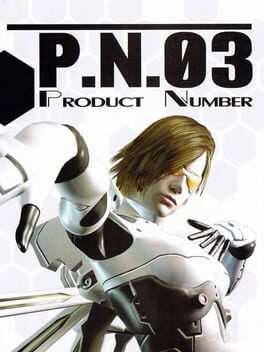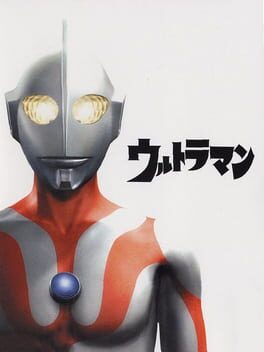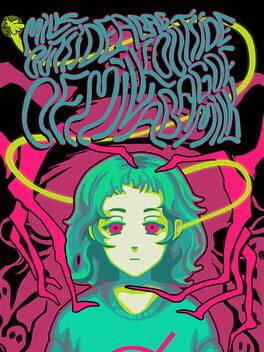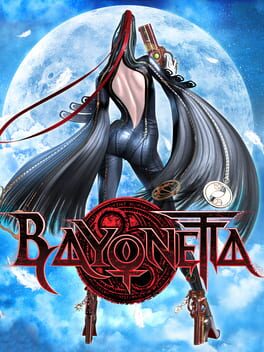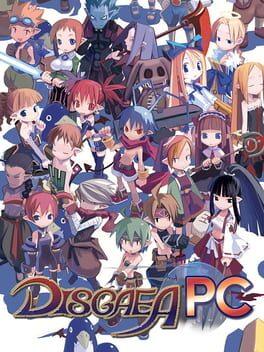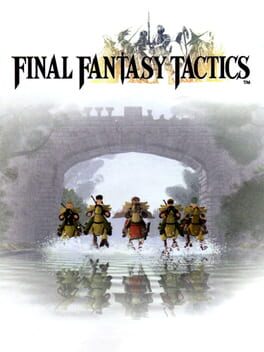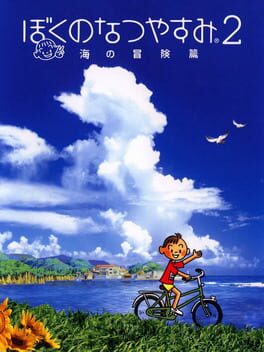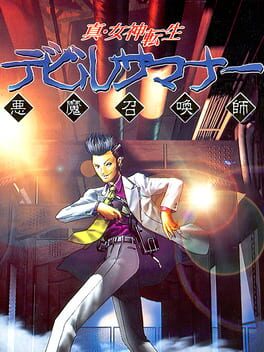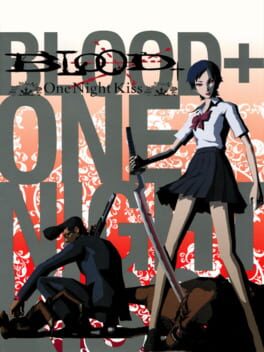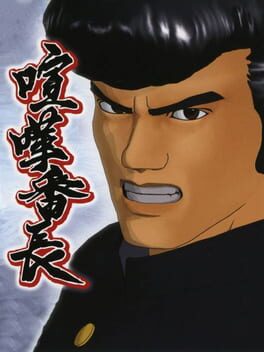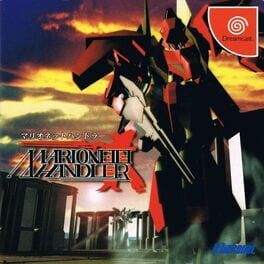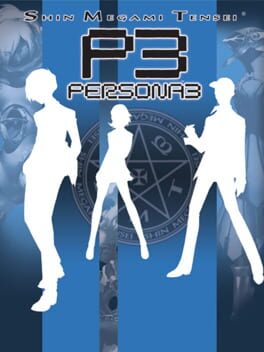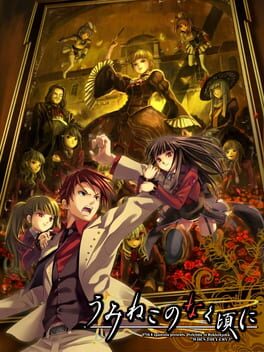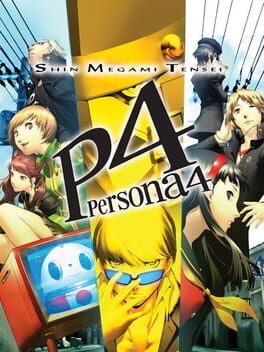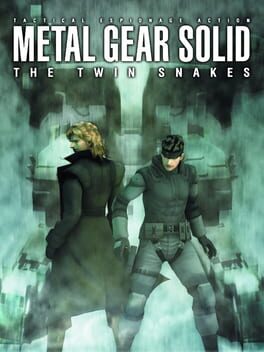MicaelApenas
106 reviews liked by MicaelApenas
Super Mario RPG
2023
Kichikuou Rance
1996
Ok... essa obra é densa e tô atônito com esse final até agr, mas vamo lá.
Uma série de jogos que começou como basicamente um meme e acabou se tornando uma franquia mt divertida e com um worldbuilding interessante e surpreendentemente profundo a cada jogo, chega aqui no seu ápice como um grande épico erótico de guerra em escala continental.
Apesar com seu elenco marcante, seu humor e carisma presente, Kichikuou Rance é uma obra cruel. Você vê nesse jogo vários núcleos de diversos personagens seja os principais e até msm figurantes sem nome, e isso é muito importante pq mostra como q esse conflito de interesse afeta desde da burguesia até as classes mais pobres. É um jogo q n é só difícil, é frustante, cansativo, desesperador, desesperançoso e até msm melancólico. E essa alta dificuldade é importante pros temas q o jogo quer trazer, em como essa guerra e ambição não beneficia ninguém (a não ser claro, O Rei Brutal). É uma obra q adora mexer com moralidade e subvertendo os lados da moeda, principalmente na parte dos reinos dos monstros onde isso é elevado a quinta potência.
Kichikuou Rance tem um loop de gameplay incrível e viciante (ao ponto de msm ter tomado softlock no final do jogo e ter q começar tudo de novo, imediatamente peguei pra jogar de novo... não é qualquer jogo q faz isso comigo, acredita em mim), q é amarrado perfeitamente com sua história, tornando uma das narrativas mais impressionantes, complexas e completas da mídia (chegando até o nível de virar meta no true ending). E ainda é um jogo TÃO rico e com TANTO conteúdo, que chega a ser assutado o quanto de detalhe tem. o valor replay desse jogo é algo sem precendentes.
Kichikuou Rance mostra o melhor e o pior da humanidade, e tudo isso é exponenciado no seu personagem título: O Rei Brutal Rance. Onde aqui neste versão ele está no seu ápice até então, onde com o contexto q ele está inserido e o seu papel q está exercendo, todos os lados dele são elevados e mostrados na mesa. Ele é extremamente egoísta, genocida, misógino e não se importa com os meios q ele vai usar pra conseguir com o quer... mas no final ele só quer viver mais uma aventura ao lado da sua parceira e viver a vida ao seu modo.
Infelizmente não é uma obra que é convidativa para todos, seja pelo conteúdo erótico, suas problemáticas ou sua dificuldade infernal. Mas certamente é algo único na indústria, um verdadeiro milagre que não é atoa que salvou a empresa da falência, sim... essa obra é um milagre onde toda a sua equipe elevou o seu máximo pra conceber e msm com suas imperfeições, é incomparável.
E pra terminar ainda tem uma das melhores ost q já ouvi, casando perfeitamente com a atmosfera do jogo e com oq a obra quer transmitir https://youtu.be/U_6YPBSasyU?si=nUBuA8MqLJ6wplQr
é inacreditável essa obra existir, como disse, um milagre.
Uma série de jogos que começou como basicamente um meme e acabou se tornando uma franquia mt divertida e com um worldbuilding interessante e surpreendentemente profundo a cada jogo, chega aqui no seu ápice como um grande épico erótico de guerra em escala continental.
Apesar com seu elenco marcante, seu humor e carisma presente, Kichikuou Rance é uma obra cruel. Você vê nesse jogo vários núcleos de diversos personagens seja os principais e até msm figurantes sem nome, e isso é muito importante pq mostra como q esse conflito de interesse afeta desde da burguesia até as classes mais pobres. É um jogo q n é só difícil, é frustante, cansativo, desesperador, desesperançoso e até msm melancólico. E essa alta dificuldade é importante pros temas q o jogo quer trazer, em como essa guerra e ambição não beneficia ninguém (a não ser claro, O Rei Brutal). É uma obra q adora mexer com moralidade e subvertendo os lados da moeda, principalmente na parte dos reinos dos monstros onde isso é elevado a quinta potência.
Kichikuou Rance tem um loop de gameplay incrível e viciante (ao ponto de msm ter tomado softlock no final do jogo e ter q começar tudo de novo, imediatamente peguei pra jogar de novo... não é qualquer jogo q faz isso comigo, acredita em mim), q é amarrado perfeitamente com sua história, tornando uma das narrativas mais impressionantes, complexas e completas da mídia (chegando até o nível de virar meta no true ending). E ainda é um jogo TÃO rico e com TANTO conteúdo, que chega a ser assutado o quanto de detalhe tem. o valor replay desse jogo é algo sem precendentes.
Kichikuou Rance mostra o melhor e o pior da humanidade, e tudo isso é exponenciado no seu personagem título: O Rei Brutal Rance. Onde aqui neste versão ele está no seu ápice até então, onde com o contexto q ele está inserido e o seu papel q está exercendo, todos os lados dele são elevados e mostrados na mesa. Ele é extremamente egoísta, genocida, misógino e não se importa com os meios q ele vai usar pra conseguir com o quer... mas no final ele só quer viver mais uma aventura ao lado da sua parceira e viver a vida ao seu modo.
Infelizmente não é uma obra que é convidativa para todos, seja pelo conteúdo erótico, suas problemáticas ou sua dificuldade infernal. Mas certamente é algo único na indústria, um verdadeiro milagre que não é atoa que salvou a empresa da falência, sim... essa obra é um milagre onde toda a sua equipe elevou o seu máximo pra conceber e msm com suas imperfeições, é incomparável.
E pra terminar ainda tem uma das melhores ost q já ouvi, casando perfeitamente com a atmosfera do jogo e com oq a obra quer transmitir https://youtu.be/U_6YPBSasyU?si=nUBuA8MqLJ6wplQr
é inacreditável essa obra existir, como disse, um milagre.
Pizza Tower
2023
This review contains spoilers
A while ago I made a pretty negative (at least compared to the Western consensus on the work) review of Umineko. This work has certainly made an impact on my life, with Ange's struggle being relatable in ways that I am not comfortable sharing, but suffice to say that this is the single most relatable work I've experienced to date, for better or for worse. My view of Umineko is completely reliant on my whims to the point that I wouldn't be surprised if whether I think it's good or bad depends on what side of the bed I woke up that morning. Numerical ratings are far from a holistic metric of how someone views a work, but it has ranged in scores anywhere from 2/10 to 10/10, changing frequently. I've tried giving it a neutral 5 or left it unrated, but even that felt off. I have never had a work I was so conflicted on live rent-free in my mind. So you can view this as another view of my "heart", so to speak. Without love it cannot be seen, different perspectives of the same person can be valid at the same time. I will leave this review and the old one up. It just feels right that way. Now let's dive in.
And Then There Were None by Agatha Christie is one of my favourites books. It sparked my interest in the mystery genre, and made the now cliche setting of a rich group of people being invited to a mansion on an island that gets caught up in a storm and cut off from civilisation a favourite, for sure. Umineko really has an interesting spin on it with how it revolves around a Japanese family with Western names, and how the island leaving no certain clues of what actually happened leads to any sorts of interpretations. The "magic system" largely revolves around walking concepts taking form as objects or entities. The author and heartless truth are concepts turned into characters that walk around and interact with the cast from what seems to be an entirely different genre. The mish-mash of genres is a constant since the ending of episode 1, and it's glorious to see how Beatrice and Battler spectate how the pieces behave through the 4th dimension, and how the soundtrack (which is absolutely top-tier, I don't know what they were smoking, but I'll be having some of that) encompasses a variety of genres, to the point of having techno-dubstep-whatever playing over characters arguing in a mansion ripped straight from ATTWN, or what is essentially Touhou music during magic fights. And I just LOVE the concept of the red/blue truths and will forever miss them in other mystery/death game media where they often just do a basic trial or something instead.
Umineko does so many things from so many different genres that it's easier to say what it isn't rather than what it is. I will say, though, the common sentiment of "if you call Umineko a mystery, you missed the point!" isn't really on the money in my opinion, and I don't think it's a view Ryukishi would support. Umineko is often called "a battle of anti-mystery and anti-fantasy", mystery is in the name. People aren't machines, and detectives are people. Who knows what sort of previously unseen evidence the detective overlooked? Who knows what happened on an island with no known survivors and no remaining evidence? The circumstances are so bizarre that it wouldn't be surprising if magical creatures descended onto the island at only that point in time, and before and after. All that is left to speculate, and that's why it's important to try to look at it from any possible point of view. Only then will we get close to MAYBE seeing the unattainable "what actually happened". Part of the point is that it is using that mystery to make the characters and readers try to reach the "heart" of the matter, to see it with love and not just treat it like a game. There are real people with many sides to them in all walks of life, even characters in mystery novels. All sorts of people get affected — culprits, such as Beatrice, whose life tipped the dominos that led to the tragedy; victims, such as Battler, who died and what was left behind was a new personality in the form of Tohya that complete disassociated from the disaster; those left behind, such as Ange, whose entire lives revolve around a single event. In a way, a "deconstruction" of the mystery genre with an uncertain solution is one of the best ways to explore such themes, because it demonstrates that anyone can be good and evil, victim or culprit, in various situations. We are all walking catboxes, even we aren't sure what is actually going on a lot of the time. Eva and Rosa can be abusers or victims of similar abuse themselves perpetuating the cycle, you often don't get the full story no matter how hard you try.
Despite my complaints about Erika and Bernkastel seemingly further enabling the sentiment that all mystery except rare exceptions like Umineko is a cold "puzzle mystery" where the detective walks in BBC Sherlock-style, solves the puzzle because they don't care about human suffering, and then walk out, the feelings of those affected be damned, they really do add a lot to the narrative. Erika is the antithesis of what Ryukishi wants someone with love to do. It's not that you have to stop thinking entirely, it's that you have to see the "love" and various sides of things. You can be so far gone in your attempt to try to logic everything out that you end up seeing a very shallow, and often incorrect, worldview. And that is one potential path that Ange could take, a life of obsession, chasing something she can never obtain. Someone so deeply buried in this hole that they won't climb out of that they reject any potential for future growth and happiness over something they have no control over.
In my view, there are three Uminekos. The first Umineko was something you had to be there for — the ambitious 8-part story with months and years between episodes which had people online in both East and West speculate about what could possibly happen, and the following frustrated reception, from which Ryukishi never truly recovered from. The second Umineko is the bingeable, complete 8 visual novel episodes that most readers who review it on this website complete. Finally, there is the manga, in which Ryukishi makes changes (for better or for worse, depending on who you ask) to the original vision. To be honest, I find it regrettable how often the view of "the VN doesn't answer anything, if you actually want an answer read the manga!" is. It Say what you want about Ryukishi's dry prose or higher-than-thou conceit (boy do we know I have a lot to say about that), but the original vision for Umineko is a work of passion, passion that you will rarely find elsewhere. It was a saga spanning years of author/audience interaction, with all sorts of possible theories and views coming up. It was a work so unapologetically dedicated to showing the "without love it cannot be seen" theme that it went as far as to call out people who don't think for themselves. Rarely will you meet an author who gives as much of a shit as Ryukishi.
And actually, the worst thing you can do is get mad at Ryukishi for you not being able to solve it. The hints are all there, especially in episode 7, they aren't talking about some random maid named Yasu and various other things like Shannon being in the same room for no reason. But that's just life, you can't expect to figure everything out. I've read plenty of things where I didn't fully get everything but I never once blamed the author. And actually, you don't need to be able to have a valid solutions for things like Yasu's identity, episode-specific murders, or the freakin' epitaph. You don't even need to put that much time into it. It's certainly nice if you do that and especially if you figure those things out, but it's not necessary. What's important is that you try.
The readers that Ryukishi is not happy with are those that don't try. Let me clarify that I think the Umineko manga has its merits, such as with the art and Yasu's Confession, and I am glad that people are finding out about Umineko through it and enjoying it. However I think that the years of unjust hate after episode 8's original release got to Ryukishi, and so despite writing "his own version of the story that doesn't disrupt the catbox at all, it's just another view" (which no one listens to btw, it's frequently accepted as the "canon version of the story"), it gave the "goats" what they wanted. Yasu's Confession is the antithesis to what Will did in episode 7 — solving the core of the mystery in a respectful manner, with "love" for the culprit. In a vacuum it is a cool backstory, elaborating on things that are left ambiguous or more vague in a manner more preferable for some readers, but in return for this and Bernkastel being far more specific with her words at the end of the episode, a large part of what made Umineko special gets damaged, because getting told "okay, here's what ACTUALLY happened" in a story where not knowing the "objective truth" is contrary to that work's vision. And Yasu didn't want this kind of reveal, and that reveal was done in episode 7 anyway. Episode 8 is Ange's conclusion, really. Yet the manga rips the guts out of the mystery in as much detail as possible when it was never the point. Yes, the backstory is well-written, but I don't think it fits within the grander picture of what Umineko was originally striving to be.
What makes someone a "loveless" reader isn't trying to solve the mystery, it isn't wanting a different ending or themes, and it most certainly isn't being anti-escapist vs. the story easily being interpreted as an escapist one. Umineko is a work that encourages thinking from beginning to end. What actually makes someone a loveless goat is not trying to see... with love. It's being a "media consumer" that's looking for the next talked about "peak fiction" that just wants an answer and to move on without any regard for the characters and what they're going through and the themes of the story. It's the people who want another "puzzle mystery" where the sole purpose for many readers is to see murders happen and find the culprit. It's not one's fault for not figuring out absolutely everything in Umineko without outside help, but it is possible, and in any case I don't find it acceptable to blame the author for it.
And it is a mystery, at least in part. Mysteries that deal with a "catbox" situation where many solutions fit the bill have existed since at least the middle of the 20th century. Japan has had shinhonkaku — new generation Japanese mystery that breaks the tropes that classical mystery has overused like a broken record. Umineko is not the first, and it certainly won't be the last to try to see things with "love" even in the Japanese mystery catalogue alone. Any work that claims to be the end-all and be-all of a genre or whatever is very questionable by default. Mysteries that don't just involve being solved like a logical puzzle by a misanthropic detective are in abundance, too — plenty of mysteries all around the globe, especially those made in modern times care about the feelings of culprits and victims and how they affect those around them. That's not what really matters here, either, though — what makes Umineko so noteworthy is how it combines so many of these genres, themes, inspirations, aesthetics, musical styles and mixes them to deliver this core message. It is a story that tries to be so many things, released and constantly affected by the two-sided interaction between author and reader. It's honestly really hard to apply "the death of the author" to this where only the product matters in a vacuum, it's just not how it was made. Episode 3 ended up being different from the original vision due to Episode 2's audience reception, for example.
It's not just murder mystery casts that should live by the idea of "without love it cannot be seen" (within reason, I mean narcissists and psychopaths exist and the healthy approach with those is cutting contact, but moderation being key goes for anything in life). It is all of us. The people we meet and grow apart with, the ones we feel apathy or disgust for and the ones we love, everyone involved has not a singular story, but multiple stories to tell. Even they themselves rarely know that. In a way you don't really need 150+ hours on average to deliver such a relatively simple idea, but when it works, it really works.
So there you have it. Another possible view at the catbox that is my opinion on Umineko. It's very possible that tomorrow I'll wake up and think that it is awful. I feel like it's fitting that someone who has been on both sides of the spectrum write both highly negative and highly positive reviews on this work. Either way, I'm sure I won't stop thinking about Umineko for a long time.
And Then There Were None by Agatha Christie is one of my favourites books. It sparked my interest in the mystery genre, and made the now cliche setting of a rich group of people being invited to a mansion on an island that gets caught up in a storm and cut off from civilisation a favourite, for sure. Umineko really has an interesting spin on it with how it revolves around a Japanese family with Western names, and how the island leaving no certain clues of what actually happened leads to any sorts of interpretations. The "magic system" largely revolves around walking concepts taking form as objects or entities. The author and heartless truth are concepts turned into characters that walk around and interact with the cast from what seems to be an entirely different genre. The mish-mash of genres is a constant since the ending of episode 1, and it's glorious to see how Beatrice and Battler spectate how the pieces behave through the 4th dimension, and how the soundtrack (which is absolutely top-tier, I don't know what they were smoking, but I'll be having some of that) encompasses a variety of genres, to the point of having techno-dubstep-whatever playing over characters arguing in a mansion ripped straight from ATTWN, or what is essentially Touhou music during magic fights. And I just LOVE the concept of the red/blue truths and will forever miss them in other mystery/death game media where they often just do a basic trial or something instead.
Umineko does so many things from so many different genres that it's easier to say what it isn't rather than what it is. I will say, though, the common sentiment of "if you call Umineko a mystery, you missed the point!" isn't really on the money in my opinion, and I don't think it's a view Ryukishi would support. Umineko is often called "a battle of anti-mystery and anti-fantasy", mystery is in the name. People aren't machines, and detectives are people. Who knows what sort of previously unseen evidence the detective overlooked? Who knows what happened on an island with no known survivors and no remaining evidence? The circumstances are so bizarre that it wouldn't be surprising if magical creatures descended onto the island at only that point in time, and before and after. All that is left to speculate, and that's why it's important to try to look at it from any possible point of view. Only then will we get close to MAYBE seeing the unattainable "what actually happened". Part of the point is that it is using that mystery to make the characters and readers try to reach the "heart" of the matter, to see it with love and not just treat it like a game. There are real people with many sides to them in all walks of life, even characters in mystery novels. All sorts of people get affected — culprits, such as Beatrice, whose life tipped the dominos that led to the tragedy; victims, such as Battler, who died and what was left behind was a new personality in the form of Tohya that complete disassociated from the disaster; those left behind, such as Ange, whose entire lives revolve around a single event. In a way, a "deconstruction" of the mystery genre with an uncertain solution is one of the best ways to explore such themes, because it demonstrates that anyone can be good and evil, victim or culprit, in various situations. We are all walking catboxes, even we aren't sure what is actually going on a lot of the time. Eva and Rosa can be abusers or victims of similar abuse themselves perpetuating the cycle, you often don't get the full story no matter how hard you try.
Despite my complaints about Erika and Bernkastel seemingly further enabling the sentiment that all mystery except rare exceptions like Umineko is a cold "puzzle mystery" where the detective walks in BBC Sherlock-style, solves the puzzle because they don't care about human suffering, and then walk out, the feelings of those affected be damned, they really do add a lot to the narrative. Erika is the antithesis of what Ryukishi wants someone with love to do. It's not that you have to stop thinking entirely, it's that you have to see the "love" and various sides of things. You can be so far gone in your attempt to try to logic everything out that you end up seeing a very shallow, and often incorrect, worldview. And that is one potential path that Ange could take, a life of obsession, chasing something she can never obtain. Someone so deeply buried in this hole that they won't climb out of that they reject any potential for future growth and happiness over something they have no control over.
In my view, there are three Uminekos. The first Umineko was something you had to be there for — the ambitious 8-part story with months and years between episodes which had people online in both East and West speculate about what could possibly happen, and the following frustrated reception, from which Ryukishi never truly recovered from. The second Umineko is the bingeable, complete 8 visual novel episodes that most readers who review it on this website complete. Finally, there is the manga, in which Ryukishi makes changes (for better or for worse, depending on who you ask) to the original vision. To be honest, I find it regrettable how often the view of "the VN doesn't answer anything, if you actually want an answer read the manga!" is. It Say what you want about Ryukishi's dry prose or higher-than-thou conceit (boy do we know I have a lot to say about that), but the original vision for Umineko is a work of passion, passion that you will rarely find elsewhere. It was a saga spanning years of author/audience interaction, with all sorts of possible theories and views coming up. It was a work so unapologetically dedicated to showing the "without love it cannot be seen" theme that it went as far as to call out people who don't think for themselves. Rarely will you meet an author who gives as much of a shit as Ryukishi.
And actually, the worst thing you can do is get mad at Ryukishi for you not being able to solve it. The hints are all there, especially in episode 7, they aren't talking about some random maid named Yasu and various other things like Shannon being in the same room for no reason. But that's just life, you can't expect to figure everything out. I've read plenty of things where I didn't fully get everything but I never once blamed the author. And actually, you don't need to be able to have a valid solutions for things like Yasu's identity, episode-specific murders, or the freakin' epitaph. You don't even need to put that much time into it. It's certainly nice if you do that and especially if you figure those things out, but it's not necessary. What's important is that you try.
The readers that Ryukishi is not happy with are those that don't try. Let me clarify that I think the Umineko manga has its merits, such as with the art and Yasu's Confession, and I am glad that people are finding out about Umineko through it and enjoying it. However I think that the years of unjust hate after episode 8's original release got to Ryukishi, and so despite writing "his own version of the story that doesn't disrupt the catbox at all, it's just another view" (which no one listens to btw, it's frequently accepted as the "canon version of the story"), it gave the "goats" what they wanted. Yasu's Confession is the antithesis to what Will did in episode 7 — solving the core of the mystery in a respectful manner, with "love" for the culprit. In a vacuum it is a cool backstory, elaborating on things that are left ambiguous or more vague in a manner more preferable for some readers, but in return for this and Bernkastel being far more specific with her words at the end of the episode, a large part of what made Umineko special gets damaged, because getting told "okay, here's what ACTUALLY happened" in a story where not knowing the "objective truth" is contrary to that work's vision. And Yasu didn't want this kind of reveal, and that reveal was done in episode 7 anyway. Episode 8 is Ange's conclusion, really. Yet the manga rips the guts out of the mystery in as much detail as possible when it was never the point. Yes, the backstory is well-written, but I don't think it fits within the grander picture of what Umineko was originally striving to be.
What makes someone a "loveless" reader isn't trying to solve the mystery, it isn't wanting a different ending or themes, and it most certainly isn't being anti-escapist vs. the story easily being interpreted as an escapist one. Umineko is a work that encourages thinking from beginning to end. What actually makes someone a loveless goat is not trying to see... with love. It's being a "media consumer" that's looking for the next talked about "peak fiction" that just wants an answer and to move on without any regard for the characters and what they're going through and the themes of the story. It's the people who want another "puzzle mystery" where the sole purpose for many readers is to see murders happen and find the culprit. It's not one's fault for not figuring out absolutely everything in Umineko without outside help, but it is possible, and in any case I don't find it acceptable to blame the author for it.
And it is a mystery, at least in part. Mysteries that deal with a "catbox" situation where many solutions fit the bill have existed since at least the middle of the 20th century. Japan has had shinhonkaku — new generation Japanese mystery that breaks the tropes that classical mystery has overused like a broken record. Umineko is not the first, and it certainly won't be the last to try to see things with "love" even in the Japanese mystery catalogue alone. Any work that claims to be the end-all and be-all of a genre or whatever is very questionable by default. Mysteries that don't just involve being solved like a logical puzzle by a misanthropic detective are in abundance, too — plenty of mysteries all around the globe, especially those made in modern times care about the feelings of culprits and victims and how they affect those around them. That's not what really matters here, either, though — what makes Umineko so noteworthy is how it combines so many of these genres, themes, inspirations, aesthetics, musical styles and mixes them to deliver this core message. It is a story that tries to be so many things, released and constantly affected by the two-sided interaction between author and reader. It's honestly really hard to apply "the death of the author" to this where only the product matters in a vacuum, it's just not how it was made. Episode 3 ended up being different from the original vision due to Episode 2's audience reception, for example.
It's not just murder mystery casts that should live by the idea of "without love it cannot be seen" (within reason, I mean narcissists and psychopaths exist and the healthy approach with those is cutting contact, but moderation being key goes for anything in life). It is all of us. The people we meet and grow apart with, the ones we feel apathy or disgust for and the ones we love, everyone involved has not a singular story, but multiple stories to tell. Even they themselves rarely know that. In a way you don't really need 150+ hours on average to deliver such a relatively simple idea, but when it works, it really works.
So there you have it. Another possible view at the catbox that is my opinion on Umineko. It's very possible that tomorrow I'll wake up and think that it is awful. I feel like it's fitting that someone who has been on both sides of the spectrum write both highly negative and highly positive reviews on this work. Either way, I'm sure I won't stop thinking about Umineko for a long time.
.Hack//Outbreak
2002
Sengoku Rance
2006
Rance não para de me surpreender e não foi diferente com Sengoku Rance, é impressionante a quantidade de conteúdo nesse jogo e como a franquia sempre se reinventa em gameplay/mecânicas.
A ideia de um JRPG tático com elementos de Management Game já foi executada em Kichikuou Rance, porém, com muito problemas de balanceamento, o que prejudica muito a sua progressão, Sengoku Rance tem um sistema de administrar territórios muito mais coeso e objetivo, além de recompensador, a party também é mais densa, cada classe tem skills particulares que têm utilidades para batalhas específicas, uma profundidade impressionante, eu realmente tive que montar estratégias para diversas batalhas e pensar quando usar X personagem, além de ter mais liberdade para explorar o potencial disso, já que diferente de Kichikuou, eu consigo manter meus membros de party, mesmo eles morrendo em batalha, claro, existe a possibilidade de perdê-los para sempre, mas não é instantâneo. O problema de balanceamento de Kichikuou que citei anteriormente também tem aqui, só que em menor escala, sendo apenas no End Game, onde fica insustentável de tão quebrado, é irritante demais o quanto as batalhas são mais longas e desproporcionalmente mais difíceis, mesmo você com um level alto e com muitas tropas, insuportável. Outro aspecto negativo, é o sistema de rotas, que pouco adicionam ao jogo, apesar do mar de conteúdo, não existe nenhum empenho em fazer essas rotas valerem por si só, além de poucos momentos legais, boa parte é só chato e cansativo, com um conteúdo repetitivo e você tendo que tomar ações já feitas anteriormente para poder progredir, além de plots que não valem tanto a pena, mas isso eu vou deixar para comentar quando for falar do enredo no geral. Já o conteúdo ero me divide um pouco, tem H-Scenes boas que tão crescimento na relação do Rance com as personagens, mas, estamos falando do protagonista mais doente já criado, então a quantidade de conteúdo cursed, vazio, fetichista, problemático e nojento é imensa, não da pra defender.
Comentando sobre a produção, visualmente é um jogo lindo, adoro o Character Design, é identidade pura, além de uma evolução impressionante, os CGs são maravilhosos, a HUD me agrada bastante também, é intuitivo e você não se perde para fazer suas ações, já a OST, é do CARALHO, fantástica, tem muitas tracks memoráveis.
Agora, a narrativa desse jogo, é simplesmente primorosa, JAPAN é gigantesca e Sengoku Rance aborda isso de forma excelente, a politicagem que envolve o país, os conflitos de cada estado, os males da guerra, a falta de liderança, preconceito, o valor da perda, o peso do amor, cada líder tem seus ideais e crenças, toda temática tem seu impacto, tudo te envolve muito fácil, é uma jornada excelente do começo ao fim, que elenco fantástico, a quantidade de personagens bons me surpreende, mas, claro, tem alguns problemas, como os character clear serem beeeem fracos e não darem substância alguma aos personagens, além de em certos casos, serem sub-plots já abordados em Rance VI que não progridem em nada o arco das personagens, uma pena que existem ainda piores, como character clear que existem só para alguma H-Scene de péssimo gosto que resume a personagem a nada além de um fetiche. Como citei em alguns blocos acima, o sistema de rotas é raso para um jogo tão denso, a True Route conta uma excelente história, já as rotas alternativas, são chatas em mecânica, porém, entregam quase nada em narrativa também, a rota da Ran é completamente skippavel, é terrível, não entrega nada além do Rance sendo um doente e conteúdo erótico merda, a rota da Yamamoto é um INFERNO de repetitiva e vazia, só vale pelo epílogo e a progressão da personagem, que é pouca durante a rota, já a rota da Kenshin é a menos pior, um pacing ok e da profundidade para a personagem e sua relação com o Rance, é o único IF que vale a pena na minha opinião.
Apesar de problemas e incomodos, Sengoku Rance me fascinou, foi um jogo que tirou semanas da minha vida, seja me divertindo ou querendo me jogar de uma ponte, mas, no fim, valeu a pena demais.
A ideia de um JRPG tático com elementos de Management Game já foi executada em Kichikuou Rance, porém, com muito problemas de balanceamento, o que prejudica muito a sua progressão, Sengoku Rance tem um sistema de administrar territórios muito mais coeso e objetivo, além de recompensador, a party também é mais densa, cada classe tem skills particulares que têm utilidades para batalhas específicas, uma profundidade impressionante, eu realmente tive que montar estratégias para diversas batalhas e pensar quando usar X personagem, além de ter mais liberdade para explorar o potencial disso, já que diferente de Kichikuou, eu consigo manter meus membros de party, mesmo eles morrendo em batalha, claro, existe a possibilidade de perdê-los para sempre, mas não é instantâneo. O problema de balanceamento de Kichikuou que citei anteriormente também tem aqui, só que em menor escala, sendo apenas no End Game, onde fica insustentável de tão quebrado, é irritante demais o quanto as batalhas são mais longas e desproporcionalmente mais difíceis, mesmo você com um level alto e com muitas tropas, insuportável. Outro aspecto negativo, é o sistema de rotas, que pouco adicionam ao jogo, apesar do mar de conteúdo, não existe nenhum empenho em fazer essas rotas valerem por si só, além de poucos momentos legais, boa parte é só chato e cansativo, com um conteúdo repetitivo e você tendo que tomar ações já feitas anteriormente para poder progredir, além de plots que não valem tanto a pena, mas isso eu vou deixar para comentar quando for falar do enredo no geral. Já o conteúdo ero me divide um pouco, tem H-Scenes boas que tão crescimento na relação do Rance com as personagens, mas, estamos falando do protagonista mais doente já criado, então a quantidade de conteúdo cursed, vazio, fetichista, problemático e nojento é imensa, não da pra defender.
Comentando sobre a produção, visualmente é um jogo lindo, adoro o Character Design, é identidade pura, além de uma evolução impressionante, os CGs são maravilhosos, a HUD me agrada bastante também, é intuitivo e você não se perde para fazer suas ações, já a OST, é do CARALHO, fantástica, tem muitas tracks memoráveis.
Agora, a narrativa desse jogo, é simplesmente primorosa, JAPAN é gigantesca e Sengoku Rance aborda isso de forma excelente, a politicagem que envolve o país, os conflitos de cada estado, os males da guerra, a falta de liderança, preconceito, o valor da perda, o peso do amor, cada líder tem seus ideais e crenças, toda temática tem seu impacto, tudo te envolve muito fácil, é uma jornada excelente do começo ao fim, que elenco fantástico, a quantidade de personagens bons me surpreende, mas, claro, tem alguns problemas, como os character clear serem beeeem fracos e não darem substância alguma aos personagens, além de em certos casos, serem sub-plots já abordados em Rance VI que não progridem em nada o arco das personagens, uma pena que existem ainda piores, como character clear que existem só para alguma H-Scene de péssimo gosto que resume a personagem a nada além de um fetiche. Como citei em alguns blocos acima, o sistema de rotas é raso para um jogo tão denso, a True Route conta uma excelente história, já as rotas alternativas, são chatas em mecânica, porém, entregam quase nada em narrativa também, a rota da Ran é completamente skippavel, é terrível, não entrega nada além do Rance sendo um doente e conteúdo erótico merda, a rota da Yamamoto é um INFERNO de repetitiva e vazia, só vale pelo epílogo e a progressão da personagem, que é pouca durante a rota, já a rota da Kenshin é a menos pior, um pacing ok e da profundidade para a personagem e sua relação com o Rance, é o único IF que vale a pena na minha opinião.
Apesar de problemas e incomodos, Sengoku Rance me fascinou, foi um jogo que tirou semanas da minha vida, seja me divertindo ou querendo me jogar de uma ponte, mas, no fim, valeu a pena demais.
NukiTashi
2023
Persona 3 Reload
2024
Embora barato e com algumas resoluções dos conflitos das personagens que não me apetecem tanto e que poderiam ser mais gradativas, um jogo que inicia de uma forma ruim, desenvolve até que bem seus aspectos na metade e que atinge seu ápice a partir da sua incrível reta final.
Gosto bastante desse tipo de Gameplay que permite você explorar o mapa e interagir com praticamente tudo que está presente no jogo, mas não somente isso, como esse estilo de gameplay também está intrinsecamente relacionado com a própria lore, mensagem e com os desdobramentos perto de sua conclusão.
A última cena é do balacobaco
Gosto bastante desse tipo de Gameplay que permite você explorar o mapa e interagir com praticamente tudo que está presente no jogo, mas não somente isso, como esse estilo de gameplay também está intrinsecamente relacionado com a própria lore, mensagem e com os desdobramentos perto de sua conclusão.
A última cena é do balacobaco
.Hack//Mutation
2002
Hollow Longing
2022
5 lists liked by MicaelApenas
